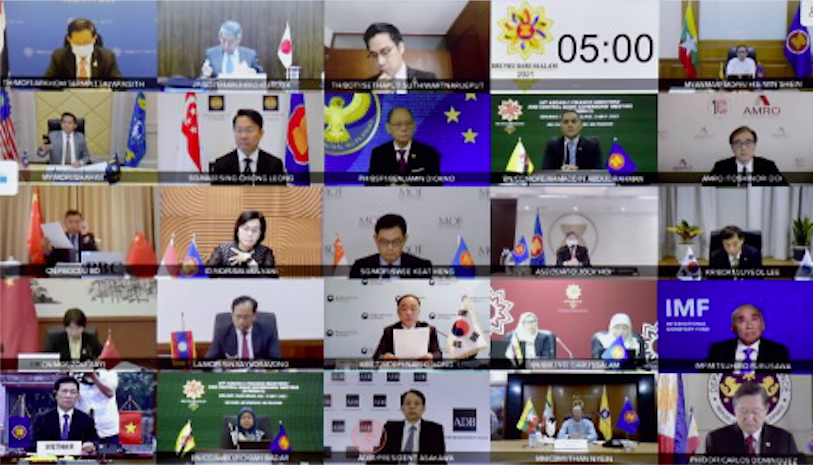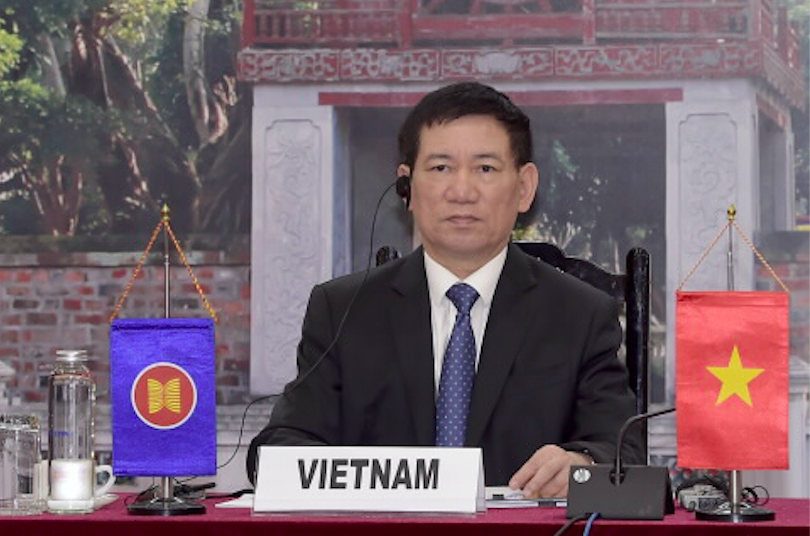ASEAN+3 to strengthen regional ties for greater economic resilience amid pandemic
ASEAN+3 countries (plus South Korea, Japan and China) would remain committed to an open and rules-based multilateral trade and investment system.
In the wake of the Covid-19 pandemic and following disruptions to global value chains, ASEAN+3 countries resolve to further strengthen regional ties as well as regional value chains, which will foster more diversified and resilient regional economies.
| Overview of the meeting. Source: MoF |
The plan was revealed in the joint statement from the 24th ASEAN+3 Finance Ministers’ and Central Bank Governors’ Meeting (AFMGM+3) under the virtual format that was convened on May 3.
The statement stressed commitments from ASEAN+3 member countries of the significance of regional cooperation to support regional economies overcoming Covid-19 and preparing for the post pandemic era, including support from an open and rules-based multilateral trade and investment system.
“We agreed to continue working together to enhance regional financial cooperation, including through the Chiang Mai Initiative Multilateralization (CMIM), AMRO, Asian Bond Markets Initiative (ABMI) and Strategic Directions of the ASEAN+3 Finance Process,” it noted.
The statement considered the signing of the Regional Comprehensive Economic Partnership (RCEP) agreement as a strong impetus to the regional trade and investment, and look forward to its earliest entry into force to further contribute to regional economic integration.
Home to 30% of the world’s population, the ASEAN+3 region accounts for under 3% of around 150 million Covid-19 infections globally so far—a result of strict but judicious applications of both blanket and targeted containment measures during the past year.
| Minister of Finance Ho Duc Phoc at the meeting. Source: MoF |
Meanwhile, wide-ranging policies to support households, businesses, and the financial sector moderate the regional contraction to 0.2% in 2020, with five ASEAN+3 economies posting positive growth.
The region expects a rebound in 2021 as the recovery gathers momentum and vaccine rollouts allow a gradual opening up of the regional economies, though the recovery appears uneven across and within countries, and subject to possible elevated downside risks including the spread of new variants of the Covid-19 virus and different paces of vaccination.
In this context, member countries expect vaccine rollouts to play a key part in accelerating regional economic recovery. At the same time, ASEAN+3 would remain vigilant to the downside risks and will use all available policy tools to ensure an inclusive and sustainable recovery and maintain financial stability.
At the online meeting, Vietnam’s Minister of Finance Ho Duc Phoc attributed the government’s strong supporting policies for enterprises to the country’s positive GDP growth of 2.91% in 2020.
“In 2021, Vietnam would continue to carry out both Covid-19 preventive measures and fiscal, monetary policies to aid the business community, aiming to realize the growth target of 6.5%,” stated Phoc.
The 25th AFMGM+3 in 2022 is set to take place in Colombo, Sri Lanka with Cambodia and China as the co-chairs of the event.














